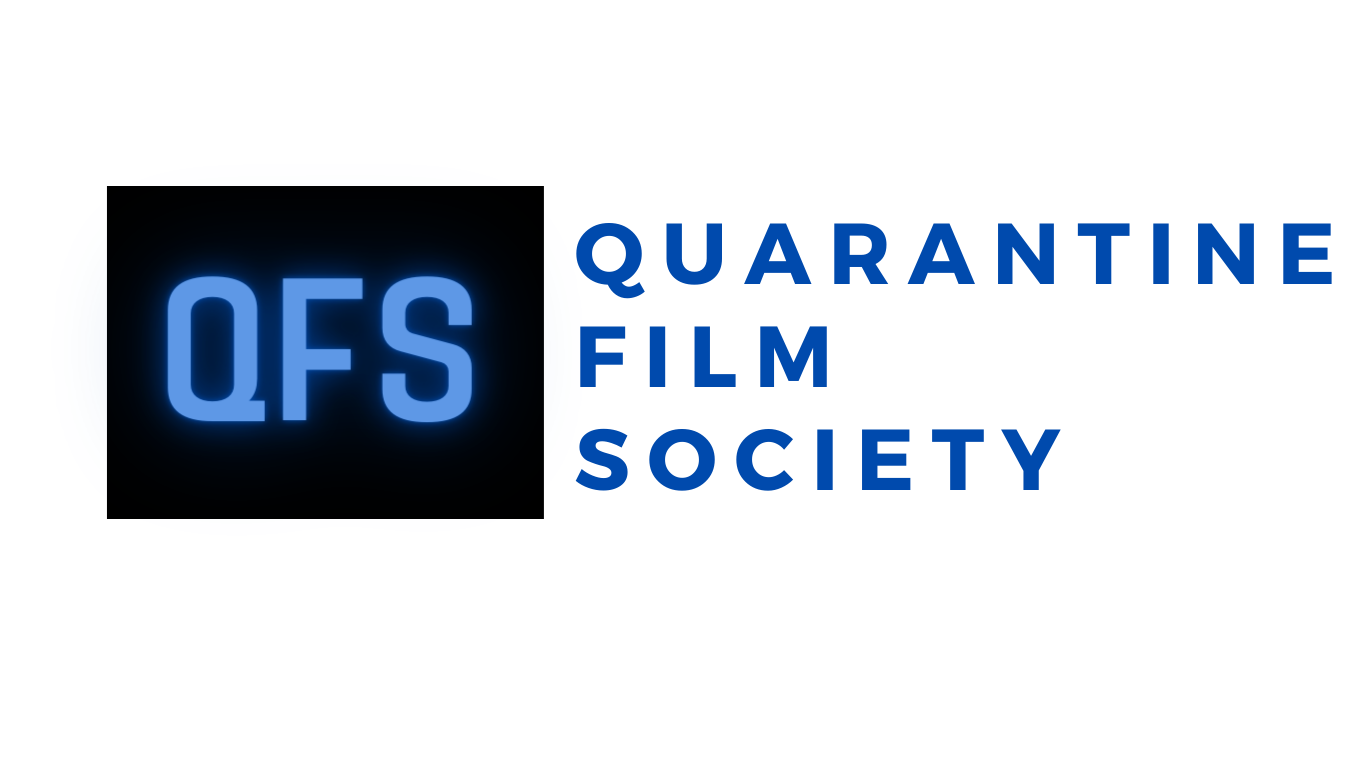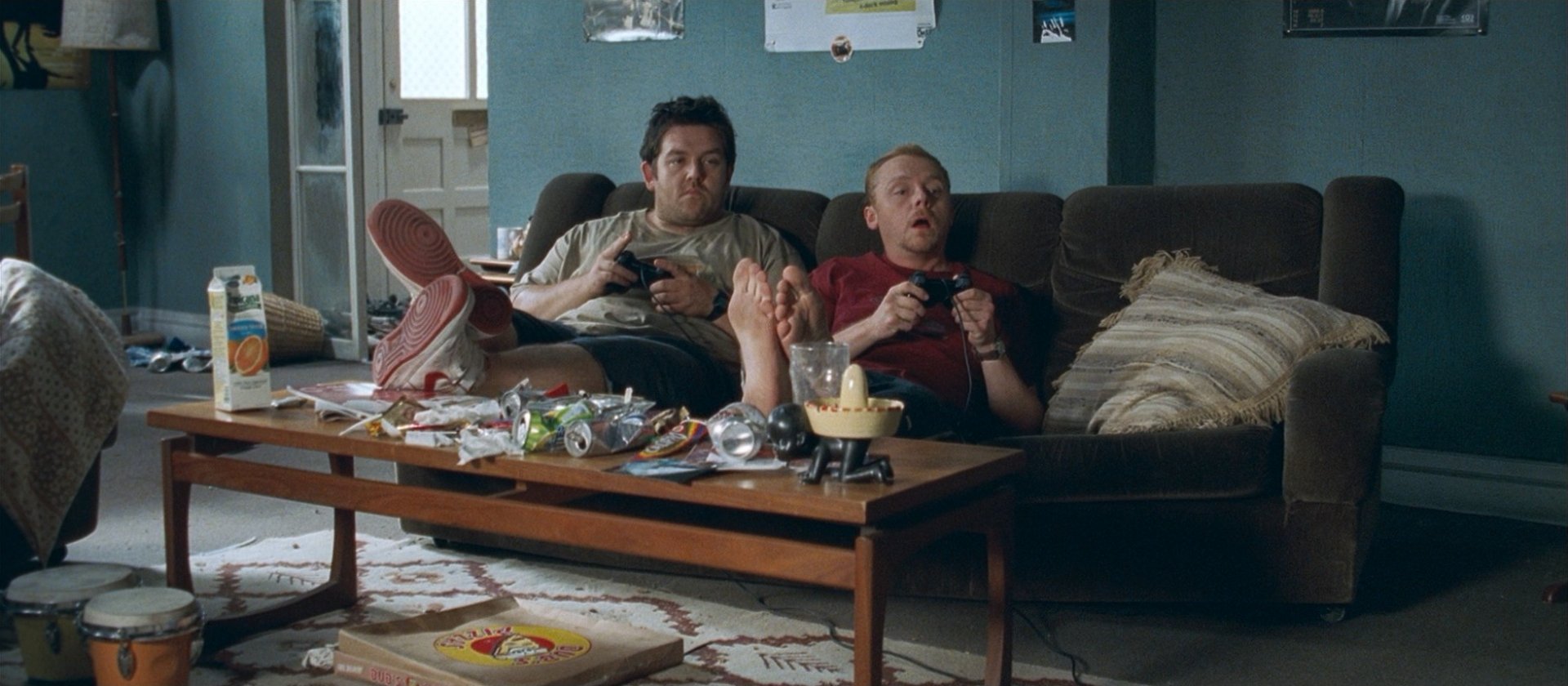Shaun of the Dead (2004)
QFS No. 156 - The invitation for October 30, 2024
Shaun of the Dead is directed by Edgar Wright, wacky genius behind one of my favorite Quarantine Film Society selections Hot Fuzz (2009, QFS No. 29), selected in our group’s first year.
And since my involvement with zombies and zombie fare as a filmmaker has been long documented, Shaun the Dead seemed like an appropriate pick to discuss on the eve of Halloween. If this movie is even remotely as funny as Hot Fuzz, it’s going to be a very satisfying viewing experience.
So for now let’s ignore our current apocalypse and watch Shaun of the Dead (one of the great plays on “of the dead” you can find) and discuss.
Reactions and Analyses:
For a comedy about zombies and a zombie apocalypse, Shaun of the Dead (2004) actually has something very pointed to say about humanity – especially at the beginning and the end of the film.
That commentary begins in the opening credits which roll after the opening teaser sequence where we meet Shaun (Simon Pegg) and all the main characters. During the opening credits, director Edgar Wright shows humans sleep-walking through life, zombie like. They sway in unison with their music devices, drugged out, waiting for the bus with vacant expressions and checking their watches simultaneously. Or they go through the motions as cashiers or in the supermarket parking lot. Even Shaun, when he wakes up, lurches like the undead.
The filmmaker appears to be saying – we’re already acting like zombies. So if an actual zombie apocalypse happens, would we even notice?
The answer, for a while, is no. At least not for Shaun and Ed (Nick Frost) – roommates and disconnected from the world and occupied by their own concerns. (Or lack of them, in Ed’s case.) Meanwhile, a strange disease or occurrence is turning people into the undead. The fact is, we are so distracted and going through the motions of life that we can easily avoid knowing that an apocalypse is at our doorstep.
Wright cleverly continues to show us that we’re already among people who are the walking dead already. A homeless beggar asks Shaun for cash and later, when that beggar has been turned into a zombie, Shaun barely notices the difference. In another scene, Shaun looks out at the park and sees what appears to be a homeless person with mental health issues who goes after pigeons. Is he about to eat one? Before we can find out, a bus comes between Shaun and the man, and both the pigeons and the – homeless person? zombie? – are gone.
Shaun even stares, zombie-like, at the television, a television set that is desperately trying to tell him that the world is crumbling and people need to take cover because humans are mutating into some sort of animal-like undead creature. It’s an incredibly brilliant device – Shaun is flipping through the channels and each one is filling out a statement, telling us (who already know this) and Shaun (who still isn’t hearing it) that the world is ending. It’s terrifically funny and a perfectly clever coordination of exposition, character development, and plot setup.
Even when one of the undead women nearly kills Shaun, they think she’s drunk and coming on to him. It isn’t until they see her impaled and survive with a hole in her torso do they finally understand that something is very very very wrong. It’s fantastic.
As several us in the discussion pointed out, Wright and his collaborator Pegg are clearly fans of genres. We screened and discussed Hot Fuzz (2009, QFS No. 29) four years ago, a film that’s a perfect homage and satire of action films that could only be done by someone deeply immersed in the genre. Same goes for Shaun of the Dead – it’s clear that Wright and Pegg are zombie movie nerds. The film contains a multitude of reference and possibly my favorite one is Shaun’s mother, named “Barbara” (Penelope Wilton) which gives the perfect set up to reference a line from Night of the Living Dead (1968, QFS No. 44) – “we’re coming to get you, Barbara!” Not to mention that they can’t say the “zed word,” a reference to the fact that zombie movies and shows go to painstaking lengths to call the undead anything but “zombies.” Even the Hindi-language broadcast in the Indian-run corner convenience store is broadcasting about the zombie apocalypse - but in Hindi so Shaun doesn’t get the news.
Wright’s comedic setup, timing and use of dialogue are unmatched in contemporary filmmaking, I feel. His comedy isn’t based on improv or relies on clever characters the way a Judd Apatow film might, but uses visuals and filmmaking in the way that Charlie Chaplain may have done to enhance comedic scenarios. It’s true directing to enhance a story. And for Shaun of the Dead, it’s his clever use of satire to make a sideways dig at humanity that elevates this film from something like Zombieland (2009) that’s a funny action zombie-genre film but nothing much beyond that. Shaun of the Dead is an insightful film about our current civilization – still “current” even though it was made 20 years ago. I’d argue it's even more relevant now, frankly. He’s saying – we’re already in a semi-catatonic state of detachment. How much different are we than the zombies of movie lore?
And what cements his apparent commentary is the film’s denouement, the final moments after the climactic finale. Humanity has now learned to live with the undead around them. Shaun and Liz (Kate Ashfield) watch TV and see that there are the mundane type of shows we have now – talk shows, game shows, news documentaries – but with one key difference. They all have folded zombie-life into their world. Zombies have been utilized to do daily labor tasks humans once did. Others are part of a game show where they’re raced or used for sport. There’s a sensationalized talk show where a woman talks about the love of her life is a zombie. It’s so perfect – humanity hasn’t so much as learned from their mistakes and made life more vibrant, they’ve just adapted to the reality of having zombies living among them.
The clincher for this is the final scene – Ed, now a zombie, is chained in a little shed in Shaun and Liz’s yard, where he’s hooked up to a video game system. Just as we saw him at the beginning of the film. And Shaun plays with him. Ed is living the same life as before. Just now, as a zombie. Which is basically what he was all along.
Is this a scathing criticism of people, society, of men in particular? After all, Shaun’s journey throughout the film is evolving from an overgrown child into a man who can take charge and actually prove his love to Liz. Regardless, the commentary or criticism would be nothing without humor, the performances, and the execution from the deft hand of an elite-level filmmaker.











